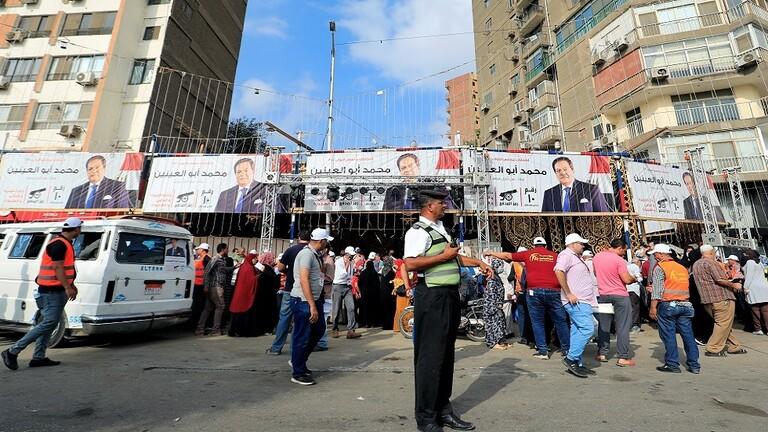Several news sites have revealed the investigations being conducted by the Egyptian Supreme State Security Prosecution, in one of the largest corruption cases related to the new administrative capital. In cooperation with police and army leaders, the case involved business people, after an attempt to seize about 32 million metres of state land in the new administrative capital, whose value is estimated at more than EGP 30 billion. This case is not the first time corruption cases have been revealed in the administrative capital – the smell of corruption was there even before it was officially opened.
In January 2019, corruption and waste of public money worth EGP 3 billion was revealed in the administrative capital’s electric train project. It is noteworthy that in March 2015, Abdel Fattah al-Sisi announced the creation of a new administrative capital. The administrative capital would be the nucleus for the relocation of ministries, embassies, and strategic sites in Cairo to a distant place in the Eastern Desert’s depth, close to Suez, to be Egypt’s future capital.
The new administrative capital
The new corruption case in the Administrative Capital and related to the seizure of state lands No. 11918 of 2019 New Heliopolis Felonies, and it was registered under No. 197 of 2019 Supreme State Security Felonies.
Counsellor Tariq Judeh, deputy of the Supreme State Security Prosecution, undertook the investigation under the supervision of Counsellor Khaled Dia, the first general counsel of the Supreme State Security Prosecution. The defendants in the case are Amr al-Sayed al-Farsi, 54, director and partner of Quincy Medical Supplies Company, Buthaina Sabri al-Basyouni, 43, a partner at the Egypt Private School of Abdeen, Fahima Saleh Hussein, 62, a pension employee, and Muhammad Sayed Amin, 45. According to investigations, three businessmen and a lawyer drew up a plan to seize about 32 million metres of state land in the 72nd kilometre of the new administrative capital road. They did that by forming an association, The Cooperative Society for Camel Breeding and Real Estate Investment, for the state land whose value is estimated at EGP 30 billion.
Investigations stated that the main defendants so far – three businessmen and a lawyer – claimed that they wanted to legalise the possession of this land. They offered a bribe consisting of a plot of land of 21,000 square metres and a cash sum of EGP 100,000 to the director of the Real Estate Affairs Department at the General Administration of Properties in Cairo Governorate, to issue its report approving the legalisation of the alleged placement on the land. However, the latter notified the Administrative Control Authority, and business people were caught red-handed after they were recorded. The investigation authorities are also currently conducting, in conjunction with sovereign and supervisory bodies, to investigate some police and army leaders’ involvement with the accused in facilitating seizing the land.
Electric train
The issue of seizing state lands was preceded by the disclosure in January 2019 of corruption and waste of public money worth $3 billion to build the monorail in the capital. This was after MP Abdel Hamid Kamal submitted an urgent statement to the speaker of parliament regarding incidents of corruption and waste of public money over the train, which aims to transport 4 million passengers per day on two tracks of 95 kilometres, to link the administrative capital with the regions of Nasr City, Giza and October 6.
According to the parliamentary statement, there is documented information about corruption and illegal procedures in the direct assignment and awarding of some companies that are not eligible to establish the project from among the 22 coalitions that have submitted their requests. This led to the exclusion of the coalition consisting of Egyptian Military Production and the Malaysian Company of Salome, which has international business precedents in constructing the monorail.
In the same month in which the deputy revealed wasting public money in the electric train project, the parliament approved al-Sisi’s decision regarding China providing a soft loan of no more than 4.6 billion yuan. Another decision was made to obtain an interest-free loan from China and construct the new administrative capital train line.





Recent Comments